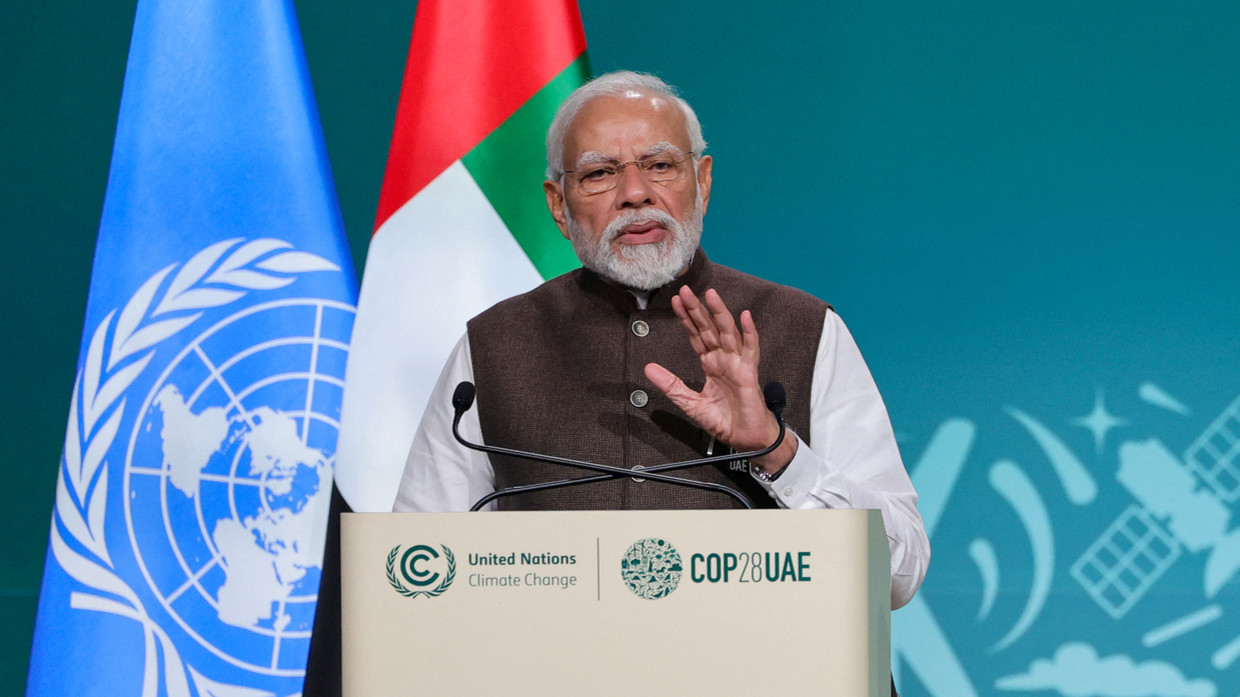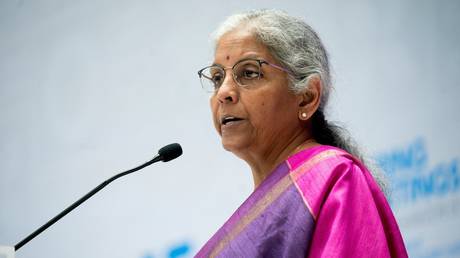Indian Prime Minister Narendra Modi on Friday underscored India’s focus on sustainable development and climate change, pitching his country as a host for the Conference of the Parties in 2028.
He noted that India and the countries of the Global South in general are committed to “climate action” despite having less resources than the world’s wealthiest nations, which are disproportionately responsible for global warming.
“We do not have a long time to rectify the mistakes of the last century,” Modi warned at the opening of a meeting for heads of states at the 28th Conference of Parties (COP28) in Dubai.
“A small section of humans plundered nature but all of mankind, especially the people in the Global South, are having to pay the price.”
The Indian leader said developed countries should pay their fair share in the global carbon budget and there should be more “balance.” Calling for “unity” among nations and a “need to be decisive,” Modi underlined that every country must fulfill its climate commitments. In view of the ongoing concerns, he suggested there was a need to increase climate finance commitment to “many trillions instead of billions.”
Modi’s comments came days after Indian Finance Minister Nirmala Sitharaman said conversations and discussions at COP28 should translate into “meaningful steps for climate action.” “A lot of talk, but no money coming on the table; [there are] no pathways to show how technology is going to be transferred,” Sitharaman said.
“Energy transition is just, inclusive and equitable, and we have to be innovative,” Modi noted, before emphasizing the need for “technology transfer” to aid the ongoing drive against climate change and environmental degradation.
According to Modi, India has struck a “balance” between ecology and economy as it is responsible for less than 4% of global carbon emissions despite having 17% of the world’s population. India is one of the few economies that is on track to fulfill its nationally determined contributions (NDCs) targets, said Modi. “We achieved targets related to emission intensity 11 years ago. As far as non-fossil-fuel targets are concerned, we have reached the targets nine years earlier.”
The prime minister said India would go further and has set targets to reduce emission intensity by 45% by 2030 and increase non-fossil-fuel shares to 50%. “We will continue moving towards our target of achieving net zero-emissions by 2070,” Modi said.
Attending the COP26 summit in Glasgow two years ago, Modi unveiled India’s five-step ‘Panchamrit’ strategy against climate change, and announced New Delhi’s ambitious plan to attain net-zero status. Even then, Modi had emphasized the importance of climate finance and low-cost climate technologies.
During COP28, Modi launched another “pro-planet, proactive and positive initiative” called the Green Credit Program (GCP). According to the Indian Ministry of Environment, Forest and Climate Change, the GCP aims to incentivize environmental actions taken by individuals, communities, and businesses voluntarily.
COP28, which is held under the United Nations Framework Convention on Climate Change (UNFCCC), is taking place in Dubai from November 30 to December 12. This year’s summit has seen the largest-ever participation with around 80,000 registered delegates from nearly 200 countries.



